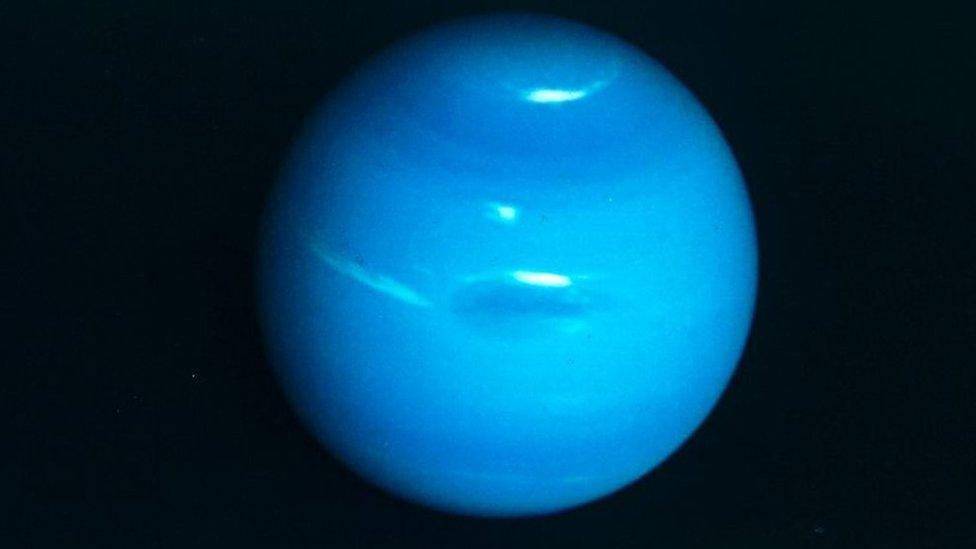Neptune: Planet has got colder by eight degrees Celsius
- Published
- comments

Neptune has been getting colder over the last two decades, according to a new study.
The blue planet is the eighth in our Solar system, and the furthest away from the Sun, floating around 2.8 million miles away.
An international team of scientists who have been looking at data from the last two decades discovered that as the planet changed into it's summer season, it actually got colder by around eight degrees Celsius.
"This change was unexpected," said Michel Roman, a researcher at the University of Leicester and lead author of the study. "Since we have been observing Neptune during its early southern summer, we would expect temperatures to be slowly growing warmer, not colder."
What is Neptune like?
This picture of Neptune was captured by Nasa's Voyager 2 spacecraft
Neptune is dark, cold, and very windy, and is classed as an 'ice giant' planet.
It is made of a thick soup of water, ammonia, and methane - which gives it it's blue colour.
Although Neptune has a shorter day than here on Earth (around 16 hours long), a year on Neptune - or a full orbit of the Sun - is about the same as 165 Earth years!
Each season, spring, summer, autumn and winter, lasts around 40 years each on Neptune!
The winds on Neptune are so powerful that they are actually supersonic (faster than the speed of sound)!
Nasa's Voyager 2 is the only spacecraft to have visited Neptune. No spacecraft has orbited this distant planet to study it at length or up close.
Why do scientists think it's getting colder?
These thermal imaging pictures show how the planet has cooled over the last few years
The researchers looked at two decades' worth of infrared (temperature) images of Neptune, gathered by super powerful telescopes like the European Southern Observatory's Very Large Telescope.
The team found that Neptune's thermal brightness (how hot it is) grew darker (or colder) between 2003 and 2018.
They also discovered that the planet's south pole actually warmed by around 11 degrees Celsius between 2018 and 2020.
The scientists aren't sure why these changes have happened, but they think it could have something to do with the Sun's 11-year-cycle.
"The temperature variations may be related to seasonal changes in Neptune's atmospheric chemistry, which can alter how effectively the atmosphere cools," Michael Roman said. "But random variability in weather patterns or even a response to the 11-year solar activity cycle may also have an effect."
Scientists hope that future research missions using telescopes like the powerful James Webb Space Telescope, will help scientists to better understand the mysterious planet Neptune, as well fellow 'ice giant' Uranus.
- Published10 April 2022
- Published16 July 2015
- Published25 January 2022
